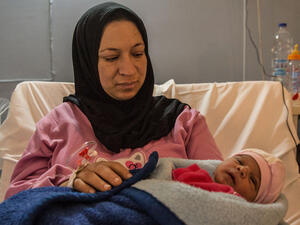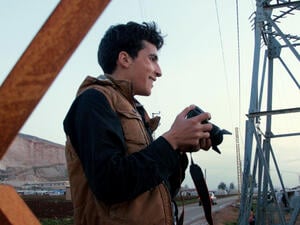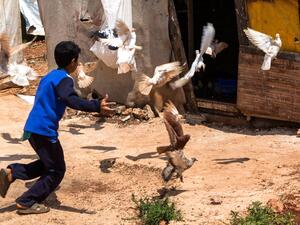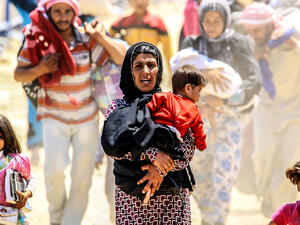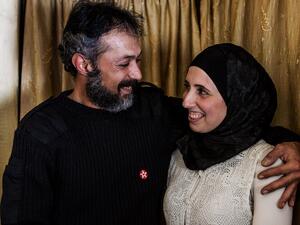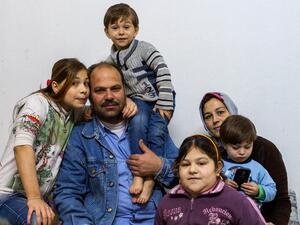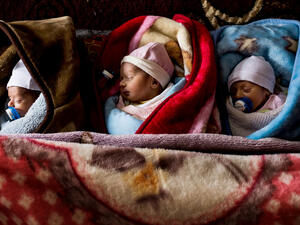Lebanese who cannot return home fear being forgotten
Lebanese who cannot return home fear being forgotten
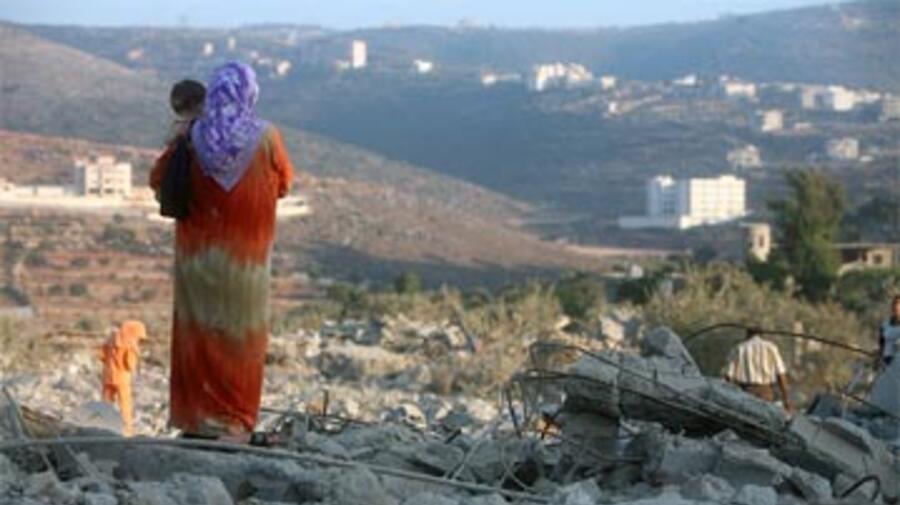
Thousands of Lebanese remain displaced because of destroyed houses or the uncertain security situation.
SIDON, Lebanon, August 28 (UNHCR) - Jamila Mehanna joined the rush back to her village in south Lebanon the moment the shooting stopped. Two weeks later she is living with other displaced Lebanese in a public building in Sidon, not sure when she will again be in her own house.
"After the ceasefire came into effect, I went immediately with my kids to check out the house. I found the Israeli tanks at the outskirts of the village and so I turned around. I prefer to wait for the Lebanese army to take control before I go home," she said.
Amid the emphasis on getting daily convoys of UNHCR aid into battered villages and the return of most Lebanese to their homes, victims of the war like Jamila fear they could be forgotten by the refugee agency and other organisations.
By the end of the war, about a million Lebanese had been displaced, including 180,000 sheltered in neighbouring Syria. Most returned in the first days after the August 14 ceasefire, but thousands remain displaced because of destroyed houses or the uncertain security situation.
Most are staying with friends or relatives near their old homes, some remain in the shelters provided during the war and others have had to return to public shelters after trying in vain to return home.
Jamila's house was in Bent Jbeil, the scene of some of the heaviest fighting of the entire war. The destruction was also extreme in nearby Aitaroun, another village along the Israeli-Lebanese border.
"Most of the houses are destroyed. The area is full of UXOs [unexploded ordnance]," said Sanaa, who lived in Aitaroun. Mine clearance experts have warned residents of south Lebanon that it will take months to remove the danger, especially the deadly bomblets scattered over the land by cluster bombs. Already several people have died.
"Seeing my house in pieces broke my heart. I would be ready to live in one of its corners under a tent if I could, but it is too dangerous," Sanaa said.
In the days following the fighting, the impact on the children is also becoming apparent. The war escalated so quickly that many families were trapped for days amid the shelling until desperation or a lull in the fighting allowed them to escape.
"My son used to run around and be very active. Since we have come here, he is not normal. He is very quiet and does not talk," said Amna. "The house next to us was shelled. The entire family in it, 10 people, was killed."
Amna, Sanaa and Jamila are among some 250 displaced Lebanese, mainly women and children, who were unable to return home and are still in two centres in Sidon, cared for by the municipality. Other displaced Lebanese had initially slipped through the safety net the authorities were trying to provide for the displaced.
Mohamed was one of a group of 40 people who had shifted from location to location over the past two weeks looking for shelter. Twice, schools where they tried to locate were taken back by education officials. Municipal authorities in Sidon, whom they were told would provide help, did not know of their plight. "Finally I went to the municipality and let them know," Mohamed told UNHCR staff. "They assigned one of their staff to take care of us."
The municipality is to provide food and medicine while UNHCR, which has opened a warehouse for aid supplies in Sidon, is providing those in need with tents, blankets, mattresses, plastic sheets and kitchen sets.
But Mohamed fears that the emphasis on helping those who have managed to return to their villages - with many organisations moving their operations further south from places like Sidon to be nearer the worst-hit areas - means the continuing needs of those who have not been able to go home will receive decreasing attention.
"When they first came, the displaced did not have to ask for anything. They were offered a lot, even if they did not need it. They were treated like brothers and sisters," he said of the help given in Sidon during the month-long war. "Now, however, the focus has moved to Tyre. The few of us who have stayed behind in Sidon are forgotten."
By Reem Alsalem in Sidon, Lebanon

